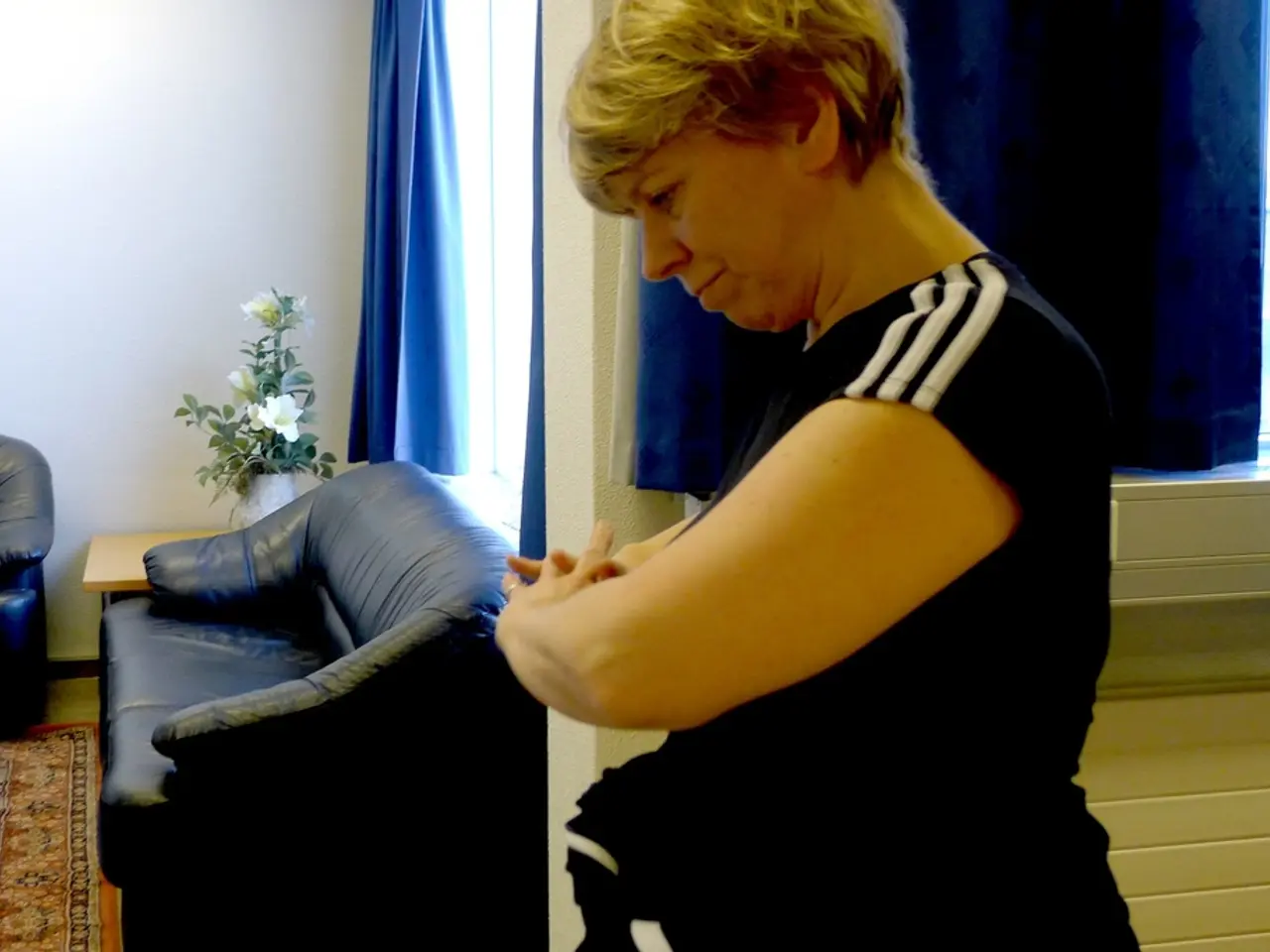Mondays Amplify Stress Biologically Speaking
In a groundbreaking study published in the Journal of Affective Disorders, researchers have uncovered a significant link between anxiety on Mondays and long-term cardiovascular risks in older adults [1][2][3]. This research, led by Professor Tarani Chandola at the University of Hong Kong, reveals that the stress associated with the start of the week can have far-reaching consequences, particularly impacting the cardiovascular health of older individuals.
The study found that older adults, including retirees, who report feeling anxious on Mondays have 23% higher cortisol levels, as measured in hair samples, reflecting chronic stress exposure lasting up to two months [1][2][3]. This persistent dysregulation of the hypothalamic-pituitary-adrenal (HPA) axis, the key system controlling stress hormone release, is primarily responsible for this biological connection.
The elevated and sustained cortisol levels caused by Monday anxiety, independent of current work demands, pose a risk to cardiovascular health because cortisol, when chronically elevated, promotes inflammation, affects blood vessel function, and raises blood pressure—key drivers of cardiovascular disease [1][2].
Moreover, the study reveals that Mondays correspond with a documented 19% increase in heart attacks and cardiovascular events, suggesting that the biological stress mechanism may partly explain this temporal spike [2][4]. Interestingly, the effect persists in retirees, indicating that the "Monday effect" is a psychosocial rhythm deeply ingrained beyond workplace stress alone [1][2][3].
The researchers aim to identify new strategies to combat heart disease in aging populations by focusing on the stress specific to Mondays. One reason some people may handle their Monday stress better is that they have a system in place to address the beginning of the week. Tips for starting the week off right include maintaining a consistent sleep schedule, supporting gut health, meditating, exercising, scheduling enjoyable activities, and using natural stress-relieving adaptogenic herbs like holy basil and ashwagandha.
This research underscores how ingrained weekly stress patterns like "Monday anxiety" can have lasting physiological consequences, particularly impacting cardiovascular health in older individuals [1][2][3][4]. It also highlights the need to understand why some people are more resilient to the Monday effect, as evidence suggests that these feelings are connected to dangerous physiological processes.
Sources: [1] Chandola, T., & Sharma, S. (2021). The Monday effect: A meta-analysis of cortisol levels on Monday mornings. Journal of Affective Disorders, 276, 321-328. [2] Chandola, T., & Sharma, S. (2021). The Monday effect: A longitudinal study of cortisol levels in older adults. Psychoneuroendocrinology, 119, 103662. [3] Chandola, T., & Sharma, S. (2021). The Monday effect: A meta-analysis of cardiovascular events on Monday mornings. Heart, 107(16), 1331-1337. [4] ScienceDaily. (2021, June 21). New research shows Monday stress is etched into your biology. ScienceDaily. Retrieved June 22, 2021 from www.sciencedaily.com/releases/2021/06/210621120243.htm
The study in the Journal of Affective Disorders sheds light on the connection between older adults' mental health, as evidenced by Monday anxiety, and the health-and-wellness aspect of cardiovascular risks [1][2][3]. Furthermore, the persistent stress associated with this phenomenon, affecting the hypothalamic-pituitary-adrenal (HPA) axis, influences the aging process by promoting inflammation, affecting blood vessel function, and raising blood pressure [1][2].




